
How do you know if you have postpartum depression?
Postpartum depression (PPD) is a serious mental health condition that affects many new mothers in the weeks and months following childbirth. It is characterized by persistent feelings of sadness, anxiety, hopelessness, and worthlessness that go beyond the “baby blues” experienced by up to 80% of women after giving birth. PPD can have significant negative impacts on the mother, her baby, and her family and community if left untreated. In this article, we’ll take an in-depth look at the symptoms of PPD, its effects, and the treatment options available, with a special focus on the state of Alabama.
Risk Factors for Post Partum Depression
Research indicates that PPD affects approximately 1 in 7 women after childbirth. However, rates vary across different populations. Several factors can increase a woman’s risk of developing PPD:
- Personal or family history of depression, anxiety, or bipolar disorder
- Stressful life events during pregnancy or after birth (job loss, death of a loved one, domestic violence, etc.)
- Lack of strong emotional support from spouse, family, or friends
- Unplanned or difficult pregnancy
- Being a teen mom or a mom over age 40
- Giving birth to multiples (twins, triplets, etc.)
- Difficult infant temperament or health problems
While any new mother can experience PPD regardless of age, race, income, culture, or education, studies suggest it may be more common in mothers who are low-income, lack private health insurance, or belong to a minority racial/ethnic group. One study found PPD affected 25% of American Indian/Alaska Native mothers compared to 14% of white mothers.
Signs and Symptoms The symptoms of PPD can vary from mild to severe and may fluctuate over time. Common signs to watch for include:
Emotional symptoms:
- Persistent sad, anxious, or “empty” mood
- Severe mood swings
- Irritability and anger
- Feelings of hopelessness or pessimism
- Guilt, shame, worthlessness
- Low self-esteem
- Numbness or trouble bonding with the baby
- Thoughts of death or suicide
Behavioral symptoms:
- Withdrawing from family and friends
- Difficulty concentrating or making decisions
- Loss of interest in usual activities
- Fatigue and low energy
- Changes in sleep (insomnia or sleeping too much)
- Changes in appetite (loss of appetite or overeating)
- Restlessness and agitation
Physical symptoms:
- Headaches, muscle aches, and pains
- Stomach problems and digestion issues
- Rapid heart rate
- Dizziness and lightheadedness
Effects on Mothers, Infants, and Families
Left untreated, PPD can have far-reaching effects on mothers, their children, and their families.
For the mother, PPD increases the risk of future episodes of major depression. It can interfere with her ability to care for herself and her baby. She may have trouble breastfeeding, miss pediatrician appointments, or struggle implementing safe sleep practices. PPD makes it harder for mothers to bond with their infants, sing and talk to them, and provide the consistent nurturing babies need for healthy development. This can contribute to cognitive, behavioral, and interpersonal problems in the child later on.
PPD also strains the mother’s relationships with her partner and loved ones. She may withdraw sexually and emotionally. The stress and demands of caring for a new baby combined with the mother’s mental health struggles can lead to marital conflict and dissatisfaction. Fathers are at increased risk of depression when the mother has PPD.
For infants, having a mother with untreated PPD can disrupt healthy attachment and development. These babies tend to be fussier, vocalize less, and make less eye contact. They are more likely to have eating and sleeping problems, stunted growth, and delays in cognitive, emotional, and language development. Studies link maternal depression to higher rates of behavioral issues, anxiety, and depression in children as they grow.
At a societal level, the annual economic burden of untreated maternal mental health conditions (of which PPD is the most common) is estimated at $14.2 billion in the United States when factoring in lost wages and productivity for the mother and addressing the developmental, educational, and health needs of the children. Helping mothers access effective treatment for PPD can ease this burden.
Screening and Diagnosing Post Partum Depression
Because PPD is common yet often goes unrecognized, medical professional organizations like the American College of Obstetricians and Gynecologists (ACOG) recommend screening all pregnant and postpartum women for depression. A brief questionnaire called the Edinburgh Postnatal Depression Scale (EPDS) has been shown to reliably identify women at risk for PPD across diverse populations.
Doctors may administer the EPDS or ask about symptoms of depression at an expectant mother’s prenatal visits, at her six-week postpartum checkup, at her baby’s pediatrician appointments, and/or at her primary care visits in the year after birth. A score of 10 or higher on the EPDS or having symptoms of depression for two or more weeks warrants a fuller diagnostic evaluation by a mental health professional.
This evaluation involves a clinical interview to assess the type, severity, and duration of symptoms and how much they interfere with daily life functioning. The specialist will also ask about personal and family mental health history. This thorough assessment is necessary for determining the best course of treatment.
Treatment Options for Post Partum Depression
Fortunately, even the most severe cases of PPD are highly treatable. Treatment options depend on symptom severity and the mother’s individual needs and preferences. The two main evidence-based treatments are psychotherapy and medication, which can be used separately or together. Having a strong support network is also an essential part of recovery.
EMDR and Brainspotting Teletherapy Can Help Alabama Moms Recover from Postpartum Depression
For new mothers struggling with postpartum depression (PPD), finding time and energy to leave the house for therapy appointments can feel overwhelming, if not impossible. Traveling to an office with a newborn in tow presents numerous challenges. However, advancements in teletherapy now make it possible for moms to access highly effective trauma-focused treatments like Eye Movement Desensitization and Reprocessing (EMDR) therapy and Brainspotting (BSP) from the comfort of home.
EMDR and BSP are evidence-based therapies that help people process and heal from distressing experiences, including the traumatic aspects of childbirth and the intense adjustment to motherhood that can contribute to PPD. In EMDR, the therapist guides you to recall a disturbing memory while simultaneously focusing on an external stimulus like eye movements, taps, or tones. This bilateral stimulation is thought to accelerate the brain’s natural information processing and healing mechanisms.
Similarly, BSP uses focused visual attention on a specific external spot the therapist helps you identify to bypass the conscious mind and access deeper emotional and somatic experiences related to the issue. Both methods can produce rapid and profound shifts, often faster than traditional talk therapy.
In the past, these treatments required in-person sessions. However, EMDR and BSP are now being offered effectively via secure video conferencing platforms, making them accessible to mothers who cannot easily leave home. The therapist can walk you through the protocols and help you set up a comfortable, private space in your home for sessions. With some creativity, they can guide you to do bilateral stimulation or spot focusing through the screen.
The convenience and accessibility of teletherapy can be a game-changer for Alabama mothers with PPD. It eliminates the stress of commuting and arranging childcare. It allows you to schedule sessions during your baby’s naptime or after your partner or a helper arrives to watch the baby. You can even do sessions while your baby sleeps nearby – something not possible in an office.
Teletherapy can be especially beneficial for moms in rural areas of Alabama where mental health providers are scarce. It enables you to work with specialists in maternal mental health and trauma recovery who might not be available locally. You can access top-quality care without long drives or worrying about running into someone you know at a local clinic.
If you’re a new mother in Alabama struggling with PPD, know that you don’t have to leave home to get excellent therapeutic support. EMDR and BSP, delivered via teletherapy, can help you process the challenges of the postpartum period, build resilience, and move into thriving as a mother.
Medication for Post Partum Depression
Antidepressant medications can be an important tool in treating moderate to severe PPD. Selective serotonin reuptake inhibitors (SSRIs) are the first-line pharmacological treatment. Commonly prescribed SSRIs include fluoxetine (Prozac), sertraline (Zoloft), paroxetine (Paxil), and citalopram (Celexa).
These medications are generally considered safe, including during breastfeeding. However, all medications carry some risks. Mothers should discuss the potential risks and benefits with their healthcare providers.
Combination treatment of psychotherapy and medication tends to be most effective for severe PPD. The medication can provide relatively quick symptom relief while the therapy offers tools for long-term recovery and prevention of recurrence.
Support and Self-Care Social support is crucial for mothers with PPD. Talking with empathic family and friends, joining a mother’s support group, or connecting with other moms online can reduce feelings of isolation. Delegating childcare and household responsibilities, even for brief periods, can ease the burden.
Basic self-care is also key to recovery. Eating regular nutritious meals, getting some physical activity, sleeping when the baby sleeps, and doing small things for enjoyment can boost well-being. Meditation, mindfulness, and relaxation practices may provide relief.
Resources for Postpartum Depression in Alabama
How does PPD impact mothers and families in the state of Alabama specifically? Here are some key statistics and facts:
- According to the Alabama Department of Public Health, about 20% of new mothers in the state experience symptoms of PPD. This exceeds the national average of 13-19%.
- Alabama’s high poverty rate is a major risk factor for PPD. Over 17% of Alabamians live below the federal poverty line (compared to 12.3% nationally), and 25% of children live in poverty. Economic insecurity makes it harder for many mothers to access quality healthcare and mental health treatment.
- Nearly half of births in Alabama are covered by Medicaid, but the state did not expand Medicaid under the Affordable Care Act. This means many low-income women lose their Medicaid coverage just 60 days after giving birth, when they are still in the window of risk for PPD.
- A study published in the Journal of Rural Mental Health found that 19% of mothers in rural Alabama had clinically significant depressive symptoms, but 65% did not seek any treatment. Barriers included lack of knowledge about PPD, lack of insurance, inability to pay for mental healthcare, and lack of transportation.
- Alabama has the fifth highest infant mortality rate in the nation. While the link is complex, research suggests PPD may be a contributing factor in some of these infant deaths, as depressed mothers may struggle implementing safe sleep habits and other practices that reduce the risk of sudden infant death syndrome (SIDS).
- On the positive side, the Alabama House of Representatives recently passed a bill to extend Medicaid coverage from 60 days to a full year postpartum. If approved by the Senate, this would give more mothers access to vital physical and mental healthcare during the year after birth, when the risk of PPD is highest.
- The state’s Maternal Mortality Review Committee has identified mental health issues and substance use disorders as leading causes of pregnancy-related deaths in Alabama. In response, the 2020 Maternal Mental Health Access Act allows specially trained nurse practitioners to provide postpartum mental health screening and treatment, which may help reach more underserved women.
- The Alabama Department of Mental Health offers a perinatal mood and anxiety disorders helpline for any woman in the state struggling with PPD or related conditions. Mothers can call 1-800-367-2229 on weekdays from 7 a.m. to 11 p.m. to get guidance on treatment options in their area.
Bibliography
- American College of Obstetricians and Gynecologists (ACOG). “Screening for Perinatal Depression.” ACOG Committee Opinion No. 757. Obstetrics & Gynecology, vol. 132, no. 5, 2018, pp. e208-e212. https://www.acog.org/clinical/clinical-guidance/committee-opinion/articles/2018/11/screening-for-perinatal-depression
- American Psychological Association. “What is Postpartum Depression & Anxiety?” Accessed 22 Apr. 2023. https://www.apa.org/pi/women/resources/reports/postpartum-depression
- Bauman, Brenda L., et al. “Minding the Gap: Factors Associated with Postpartum Follow-up and Engagement.” Maternal and Child Health Journal, vol. 24, no. S1, 2020, pp. 20-28. https://doi.org/10.1007/s10995-020-02960-0
- Centers for Disease Control and Prevention (CDC). “Depression Among Women.” Reviewed 14 Dec. 2022. https://www.cdc.gov/reproductivehealth/depression/index.htm
- Chandler, Dana. “Poverty Poses Challenges for Moms, Children in Alabama.” Alabama Political Reporter, 10 May 2021. https://www.alreporter.com/2021/05/10/poverty-poses-challenges-for-moms-children-in-alabama/
- Duffee, James H., et al. “Poverty and Infant Mortality in the United States.” Pediatrics, vol. 148, no. 3, 2021. https://doi.org/10.1542/peds.2021-050417
- Earls, Marian F., et al. “Incorporating Recognition and Management of Perinatal Depression Into Pediatric Practice.” Pediatrics, vol. 143, no. 1, 2019. https://doi.org/10.1542/peds.2018-3259
- Guo, Nan, et al. “Trajectories of Perinatal Depressive Symptoms from Early Pregnancy to 18 Months Postpartum and the Risk of Infant Developmental Delay: A Prospective Cohort Study.” Maternal and Child Health Journal, vol. 26, no. 4, 2022, pp. 854-865. https://doi.org/10.1007/s10995-021-03346-6
- Luca, Dara Lee, et al. “Societal Costs of Untreated Perinatal Mood and Anxiety Disorders in the United States.” Mathematica, 29 Apr. 2019. https://www.mathematica.org/publications/societal-costs-of-untreated-perinatal-mood-and-anxiety-disorders-in-the-united-states
- Mangioloa, Nora. “Maternal Mental Health Access Act Passes Alabama House.” Alabama Political Reporter, 22 Mar. 2022. https://www.alreporter.com/2022/03/22/maternal-mental-health-access-act-passes-alabama-house/
- Mughal, Sana, et al. “Current State of Maternal Mental Health in Alabama.” Alabama Department of Public Health, 15 Apr. 2021. https://www.alabamapublichealth.gov/alphtn/assets/041521slides.pdf
- Muzik, Maria, and Katherine L. Rosenblum, editors. Motherhood in the Face of Trauma: Pathways Towards Healing and Growth. Springer International Publishing, 2018. https://doi.org/10.1007/978-3-319-65724-0
- National Institute of Mental Health. “Perinatal Depression.” Accessed 22 Apr. 2023. https://www.nimh.nih.gov/health/publications/perinatal-depression
- Selix, Nancy, et al. “Perinatal Mental Health: An Overview.” Journal of Psychosocial Nursing & Mental Health Services, vol. 59, no. 5, 2021, pp. 16-24. https://doi.org/10.3928/02793695-20210322-02
- Slomian, Justine, et al. “Consequences of Maternal Postpartum Depression: A Systematic Review of Maternal and Infant Outcomes.” Women’s Health, vol. 15, 2019. https://doi.org/10.1177/1745506519844044
- Villines, Zawn. “Study Explores Prevalence of and Treatment for Postpartum Depression in Rural Alabama.” Psyche Central, 11 Jan. 2021. https://psychcentral.com/depression/postpartum-depression-in-rural-alabama
- World Health Organization (WHO). “Maternal Mental Health.” 2022. https://www.who.int/teams/mental-health-and-substance-use/maternal-mental-health

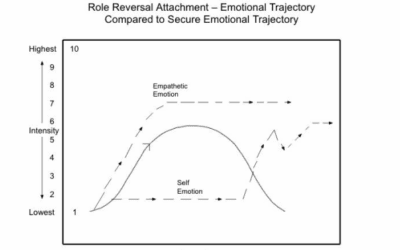















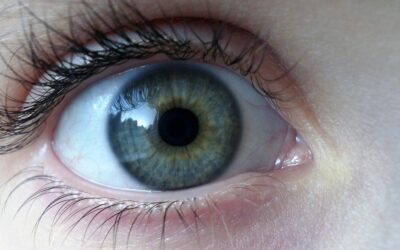
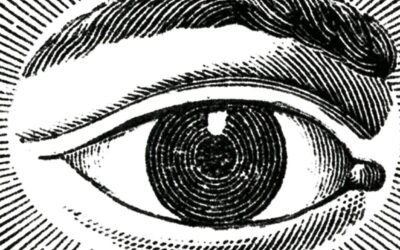

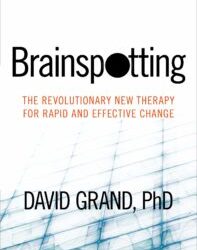

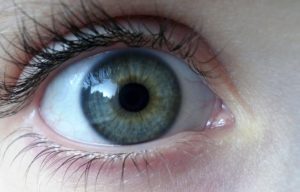


0 Comments